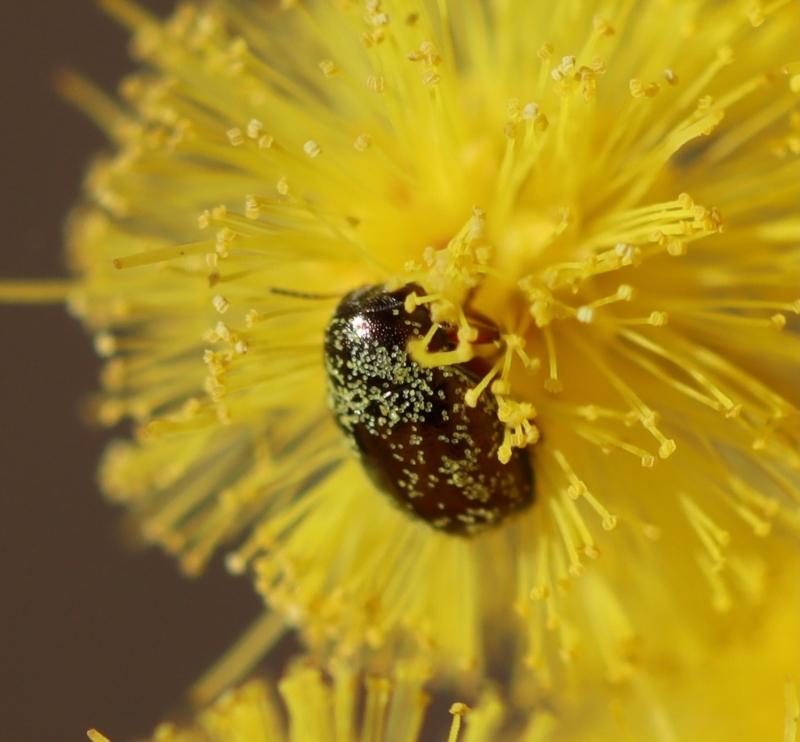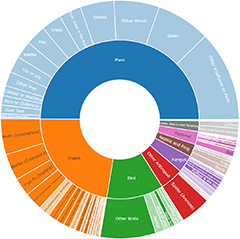Winter Pollinator Research Project species
Posted by MichaelBedingfield
See this reference for the announcement of the Winter Pollinator Research Project:
https://canberra.naturemapr.org/collections/10556

Winter is a time when most insects are dormant or inactive, waiting for the warm weather to return in Spring. Yet there are lots of plants that flower in late winter. So what insects pollinate those flowers? Would you like know and would you like to help in this research project?
Roger Farrow (RogerF) has a research project to discover the secret of the winter pollinators. There are a number of native plants that flower late winter especially in August. There are some early flowering Wattle species such as Acacia genistifolia, pea flowers such as Hovea heterophylla and Hardenbergia violacea, shrubs such as Melichrus urceolatus and Cryptandra amara and Cryptandra sp. Floriferous.
There also the bearded heaths, Leucopogon species, such as Small-leaved Beard Heath, Leucopogon attenuatus, see photo on the right.
If you see any insects hanging around or on these the flowers of these plants please photograph them and upload your sightings onto Canberra Nature Map. You can add your sighting to the this page, the "Winter Pollinator Research Project".
You can contact Roger through his Message Page here.
Add a sighting
No species currently belong to this list.
- Collection type Research project
Follow this collection
Receive alerts of new sightings
SubscribeFilter
-
Vagrant native (change?)
* designates formal legal status
- Non-invasive or negligible (change?)
Caps on stems; pores below caps [boletes & stemmed polypores]
- Boletes - Fleshy texture, stems central (more-or-less)
- Polypores - Non-fleshy texture, stems central or lateral
Share to contribute
Share link to contribute to Winter Pollinator Research Project

